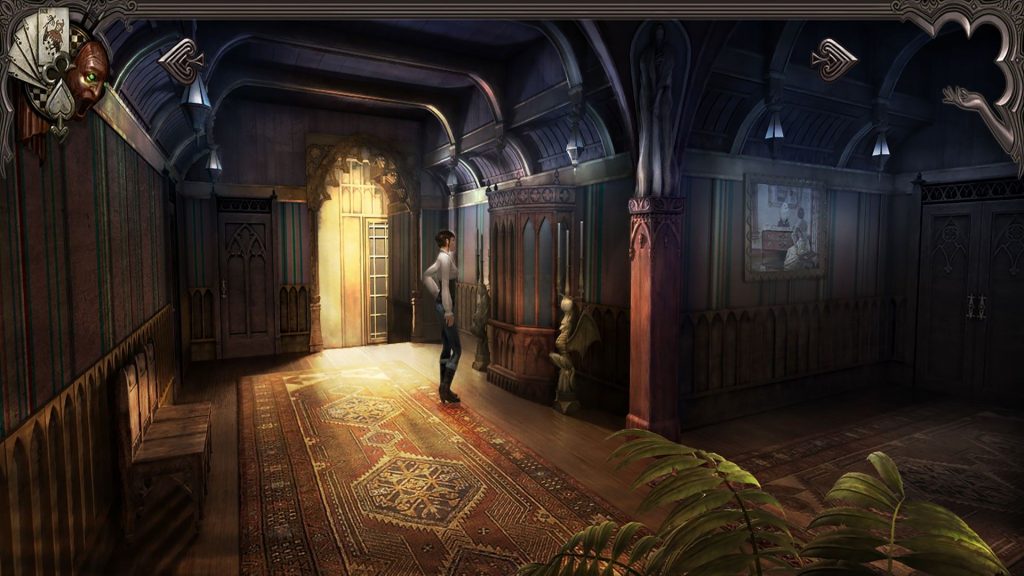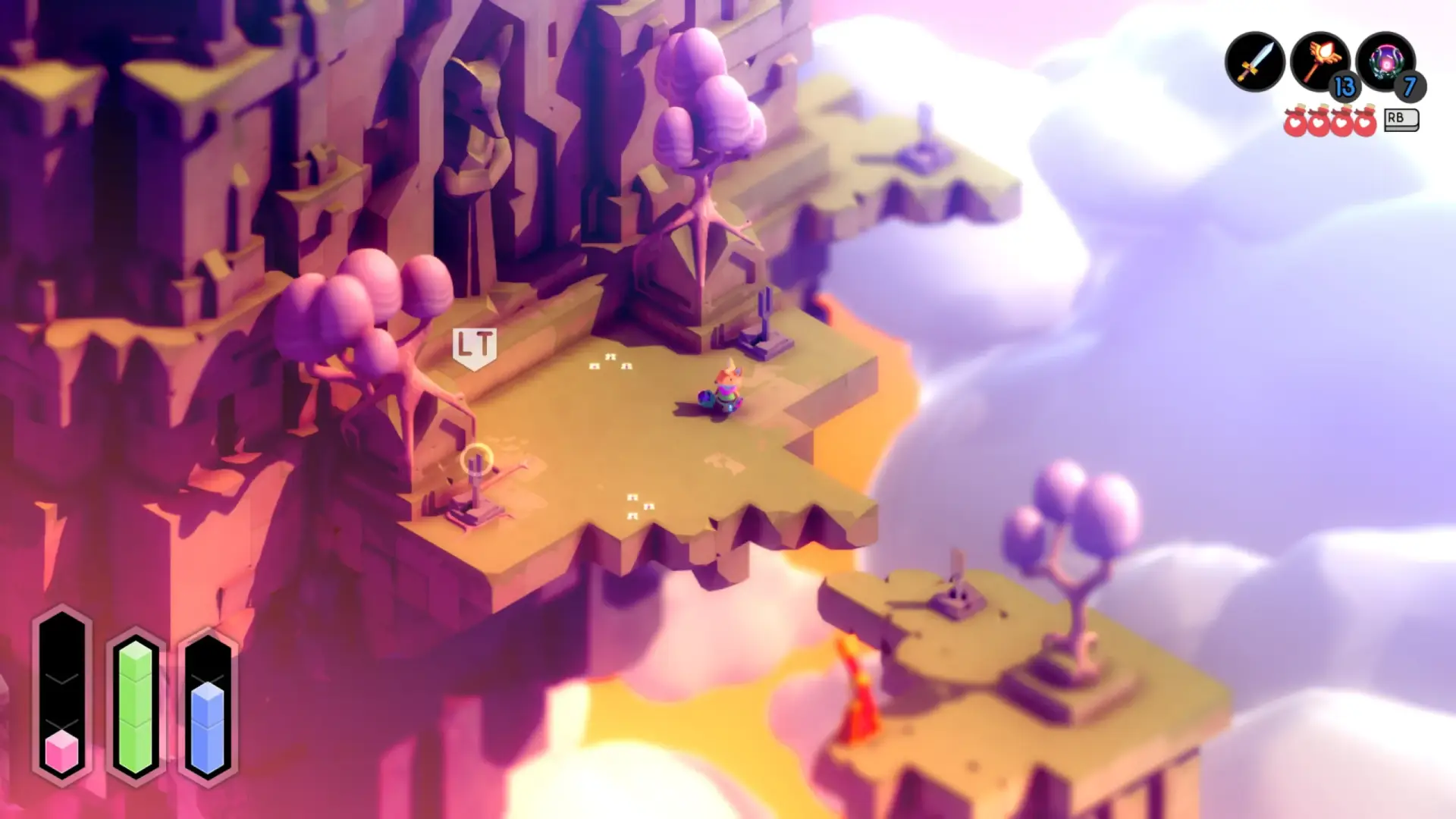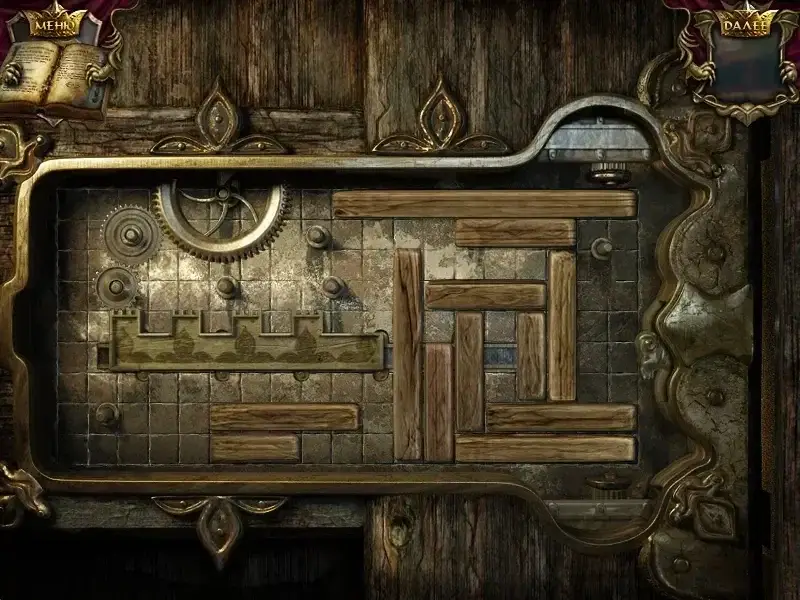Despite the general trend towards action and open-world games, the quest genre continues to produce highly sought-after, visually stunning, and emotionally profound projects. The interactive storytelling, multi-layered scenarios, attention to detail, and immersive gameplay make these concepts an enduring choice for those who value meaning, atmosphere, and engaging gameplay. In 2025, the question of which quests to play becomes particularly relevant as the market expands with new names, experimental mechanics, and reimagined classics.
Developers are increasing the stakes: projects are getting nonlinear, deep moral dilemmas, powerful voice acting and cinematic direction. Instead of classic puzzles, there is atmosphere, choice and consequences. And dry gameplay has been replaced by drama, surprises and full immersion.
Visual Interactive Drama: Dustframe
The events unfold in a dystopia, where every act affects the perception of a character by society. The project uses painterly hand-drawn animation with deep color correction, and all the mechanics are based on verbal interactions and reactions to the environment. Instead of traditional tasks, there are social dilemmas and emotional conflicts. The reputation system forms an individual story. The algorithm does not repeat the trajectory even with a similar choice. Players have received hundreds of unique endings. In the first quarter of 2025, the game garnered 92% positive reviews on major digital platforms.
VHS-Style Neo-Noir: Dead Signal
 The scenario is built around the disappearance of a hacker in the underground technobarricades of the metropolis. The camera is in first-person view, and the interface is stylized as an 80s movie. Each episode is a single VHS file. The lack of autosave enhances the anxiety and creates a paranoid atmosphere. The narrative unfolds through terminals, phone conversations, clues, and other people’s notes. The character’s actions influence the structure of their memories. The visual glitches and interference are not just an element of setting; they encode information. Critics have already called the project a “dream game,” and users have given it an 8.9 out of 10 rating on major platforms.
The scenario is built around the disappearance of a hacker in the underground technobarricades of the metropolis. The camera is in first-person view, and the interface is stylized as an 80s movie. Each episode is a single VHS file. The lack of autosave enhances the anxiety and creates a paranoid atmosphere. The narrative unfolds through terminals, phone conversations, clues, and other people’s notes. The character’s actions influence the structure of their memories. The visual glitches and interference are not just an element of setting; they encode information. Critics have already called the project a “dream game,” and users have given it an 8.9 out of 10 rating on major platforms.
Metaphysical Quest: Equinox Reversal
The project explores the intersection of psychology, architecture, and artificial intelligence. The tasks are based on symmetry, cycles, and the concept of repetitive memory. Objects transform based on the player’s thinking logic, and dialogues are recorded in the simulation’s memory and recalled after chapters. The soundtrack is based on a biorhythm algorithm. It sounds different in each session. The authors have incorporated synesthesia into the visual images, where colors, shapes, and sounds react to emotional decisions. For those who prefer a philosophical approach, this title offers a definitive answer to the question of what quests to play in 2025.

What other quests to play in 2025
The gaming market demonstrates a powerful cross—section of the genre – from chamber psychological stories to complex conceptual dramas. The question of which quests to play in 2025 is now not only about taste, but also about willingness to embrace new forms of storytelling, mechanics, and visual solutions. Projects are no longer limited to linear tasks — they experiment with perception, time structure, visual presentation and philosophical implications. Below are the most striking and significant representatives of the quest segment, in which every detail affects the perception and sets the pace of the gaming experience.
Seraphim Protocol
A biotech thriller with strong drama. The player monitors the character’s mind through a neural interface, correcting his behavior, thoughts, and perception of reality. The plot branches off along 15 main lines with multiple intersections. The events unfold in a world where corporations sell “consciousness enhancements.” Ethical issues are integrated into gameplay through implants: each upgrade affects emotions and memory. The game received nominations for Sci-Fi Game Awards and Narrative Mechanics Design.
August Traces
A meditative game-journey through memories. The mechanics are based on collecting “emotional fragments” – objects, people, smells, sounds, associations. The player reconstructs scenes from the past, moving between time loops. The lack of a clear linear plot creates the effect of a blurry, but deeply personal story. The art style combines realistic graphics with watercolor filters, and the sound track includes lo-fi music and nature sounds. Recommended for those looking for a quest with a slow pace and deep reflection.
The Last Call
An interactive story based on radio broadcasts. The main character is the host of the night broadcast, who receives strange calls from listeners, presumably from parallel worlds. The dialogue system is based on the “tone of the answer”: even one wrong word can trigger a disaster. The atmosphere is inspired by The X-Files and radio dramas from the 50s. Unique audio mechanics are involved: different radio wave frequencies reveal hidden layers of storytelling and alternative routes.
Where We Sleep
A project without dialogue, text, or interface. The narrative is conveyed solely through facial expressions, intonation, environmental details, and sound. Control is achieved through eye movements and micro-interactions with objects. The gameplay resembles a theater of gestures, where it is crucial to recognize emotions through non-verbal cues. The story unfolds in a closed institution, where each character lives in a dream. The player explores these characters to uncover the truth. This project definitively answers the question of what experimental quests to play in 2025.
Covenant 303
A gothic detective game with a built-in investigation mechanic. The game features a database of suspects, evidence, and testimonies that can be structured according to the player’s preferences. The ending is determined by the player’s evidence and interrogation strategy. The game is set in Victorian England and features a monochrome visual style with neon accents. The game offers a high level of replayability, as each missed piece of evidence or incorrect interpretation leads to a different ending. The game features 24 unique endings, each resulting from a different set of logic.
The Echo Library
An atmospheric concept about a library where every word you read disappears from the world. The user is balancing the need to find out and the risk of losing. All books, documents, and notes affect the environment. The more information you read, the less there is left of the world. It is necessary to choose which to preserve: knowledge or form. The visual style is retro—futurism with elements of paper architecture.

Fall into Static
A surreal experiment inspired by the late work of David Lynch. The gameplay is based on memory instability: each scene is reproduced with distortions, repetitions and missing elements. The character lives in several timelines at the same time. Music is out of sync with actions, dialogues go backwards, and interaction with objects sometimes triggers events from other chapters. The project completely breaks the structure of the quest and creates the effect of narrative hallucination.
The length of the story and the variety of solutions
Most of the projects presented have departed from the standard model of “inventory + lock = key”. Instead of the usual puzzles, there is emotional logic, cause-and-effect relationships, and large-scale branching scenarios. The average duration of a single playthrough ranges from 8 to 14 hours, but re-playability provides new scenes, endings, and routes.
Conclusion
 Modern quests have gone beyond the genre. They have evolved into a study of emotions, memory, and perception. The projects continue to transform: from a story game to an interactive experience, from a puzzle to a dialogue with oneself. Answering the question of which quests to play in 2025 requires more than just a list of releases. It’s about immersion, trust in the developer, and willingness to reflect.
Modern quests have gone beyond the genre. They have evolved into a study of emotions, memory, and perception. The projects continue to transform: from a story game to an interactive experience, from a puzzle to a dialogue with oneself. Answering the question of which quests to play in 2025 requires more than just a list of releases. It’s about immersion, trust in the developer, and willingness to reflect.
 The scenario is built around the disappearance of a hacker in the underground technobarricades of the metropolis. The camera is in first-person view, and the interface is stylized as an 80s movie. Each episode is a single VHS file. The lack of autosave enhances the anxiety and creates a paranoid atmosphere. The narrative unfolds through terminals, phone conversations, clues, and other people’s notes. The character’s actions influence the structure of their memories. The visual glitches and interference are not just an element of setting; they encode information. Critics have already called the project a “dream game,” and users have given it an 8.9 out of 10 rating on major platforms.
The scenario is built around the disappearance of a hacker in the underground technobarricades of the metropolis. The camera is in first-person view, and the interface is stylized as an 80s movie. Each episode is a single VHS file. The lack of autosave enhances the anxiety and creates a paranoid atmosphere. The narrative unfolds through terminals, phone conversations, clues, and other people’s notes. The character’s actions influence the structure of their memories. The visual glitches and interference are not just an element of setting; they encode information. Critics have already called the project a “dream game,” and users have given it an 8.9 out of 10 rating on major platforms.
 Modern quests have gone beyond the genre. They have evolved into a study of emotions, memory, and perception. The projects continue to transform: from a story game to an interactive experience, from a puzzle to a dialogue with oneself. Answering the question of which quests to play in 2025 requires more than just a list of releases. It’s about immersion, trust in the developer, and willingness to reflect.
Modern quests have gone beyond the genre. They have evolved into a study of emotions, memory, and perception. The projects continue to transform: from a story game to an interactive experience, from a puzzle to a dialogue with oneself. Answering the question of which quests to play in 2025 requires more than just a list of releases. It’s about immersion, trust in the developer, and willingness to reflect. en
en  ru
ru  de
de  ar
ar  es
es  hi
hi  fr
fr  nl
nl  it
it  pt
pt  el
el 










